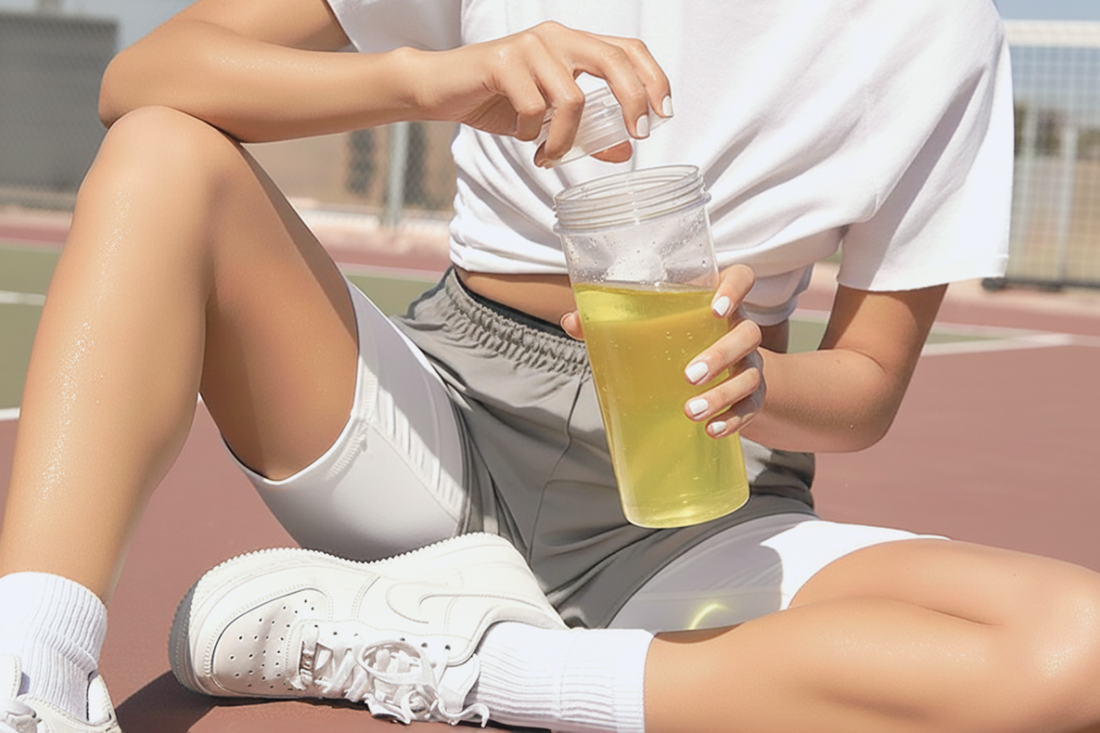Performance Starts with Structure
Athletes don’t just rely on talent or training—they rely on structure.
Every sprint, lift, and deep lunge demands strong bones, resilient joints, stable tendons, and healthy muscles. And at the core of all of these? Collagen.
Collagen is the most abundant protein in the body—making up about 30% of total proteins and a huge portion of your connective tissue. It holds everything together, literally.
So when collagen levels drop with age or intense training, performance, recovery, and resilience all start to suffer. That’s why professional athletes don’t treat collagen as “optional.” It’s a foundational fuel.
And the smartest version? Low-molecular marine collagen.
Why Marine Collagen Belongs in Every Athlete’s Routine
1. Stronger Joints, Tendons & Ligaments
Heavy training puts stress on connective tissue before it ever hits the muscle.
Marine collagen delivers the amino acids needed to repair and reinforce joints and tendons, making every movement more stable and powerful.
2. Faster Recovery, Less Downtime
Microtears are a normal part of training—but prolonged soreness isn’t.
Marine collagen supports tissue repair, helping the body recover faster so you can get back to peak performance sooner.
3. Better Bone Strength (Not Just Calcium!)
Bone density depends on more than minerals. Collagen forms the protein matrix that calcium attaches to. Without collagen, bones become brittle—no matter how much calcium you take.
4. Sleep & Focus: The Silent Performance Boost
Marine collagen is rich in glycine, an amino acid proven to:
- Improve deep, restorative sleep
- Calm the nervous system
- Increase focus and mental clarity
Strong body + clear mind = unstoppable performance.
5. Skin That Survives Outdoor Training
Sun + sweat + wind = collagen breakdown.
Marine collagen helps restore skin elasticity, repair UV damage, and maintain hydration—so outdoor athletes don’t have to choose between performance and skin health.
Why Food Alone Isn’t Enough
Yes, collagen exists in foods like pork skin or bone broth—but absorption rates are as low as 2%.
That’s why athletes focus on marine collagen peptides that are enzymatically hydrolyzed (broken down) for high bioavailability.
Timing: When Athletes Take It
Marine collagen takes about 1 hour to fully enter circulation, which gives you two perfect timing strategies:
1. Pre-workout (30–60 min before)
Increases availability right when blood flow spikes and muscles are under repair.
2. Evening wind-down
Pairs beautifully with vitamin C, supports collagen synthesis overnight, and improves sleep quality.
Either way, consistency wins. Daily > occasionally.
Not Just for Pros: Everyday Athletes Benefit Too
You don’t need a jersey or sponsorship to need collagen.
If you:
- Work out regularly
- Sit at a desk but train hard on weekends
- Deal with joint stiffness, soreness, or fatigue
- Want better recovery, sleep, skin, or performance…
Then you’re an everyday athlete—and collagen is your new training partner.
FAQs
Why marine collagen over bovine or porcine?
Marine peptides are naturally smaller and more bioavailable, which means your body can use them efficiently—ideal when you’re training and recovering on repeat.
Pre- or post-workout—which is better?
Both work. Many athletes take a liquid shot 30–60 minutes pre-workout to align with increased circulation; evening is great if you pair it with vitamin C and want the sleep benefits from glycine.
Do I need HA and elastin in the formula?
If you want full-circle support, yes. Collagen (structure) + elastin (bounce) + hyaluronic acid (hydration) is the dream team—for joints, skin, and overall resilience.
